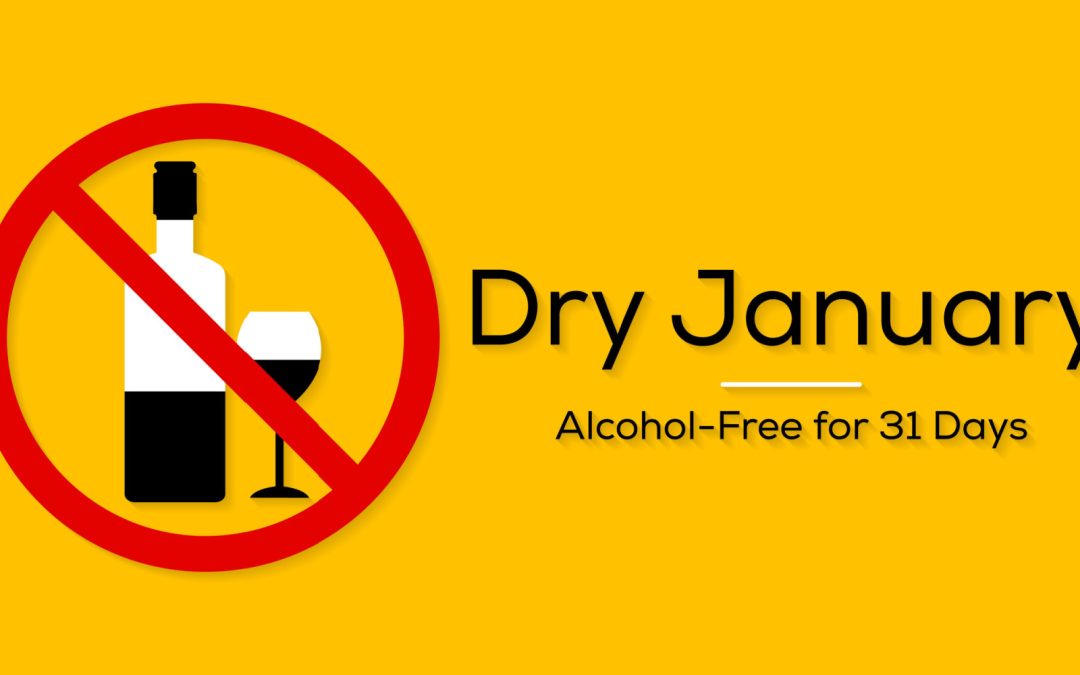Following the holiday season, many people participate in what is known worldwide as Dry January. This 31-day sobriety challenge starting the month of January was established 10 years ago by a U.K. charity called Alcohol Change UK. The organization started the campaign as a health initiative designed to bring attention to physical health issues related to alcohol consumption, like liver disease and high blood pressure. In addition, this campaign aims to focus peoples’ attention inward to help themselves better understand their relationship with alcohol.
But Dry January has also evolved as a way to further examine your relationship with alcohol. For example, someone who cannot complete Dry January may be dependent on alcohol. Continue reading to learn more about how you can determine if you have a drinking problem and, if so, what treatment options are available.
Do I Have a Drinking Problem?

Nearly 18 million adults in the U.S. suffer from alcohol abuse or dependence, which equals out to one in 12 people. For this reason, many people may struggle to complete Dry January.
But how do you know if your drinking is starting to veer into dangerous territory? If you don’t think you can complete Dry January, you might need to reevaluate your relationship with alcohol.
If you’re interested in finding out how likely you are to have an alcohol use disorder (AUD), the National Institute on Alcohol Abuse and Alcoholism (NIAAA) offers a series of questions that have “yes” or “no” answers.
Have you found yourself:
- Drinking more and longer than you intended?
- Trying to cut back or stop drinking alcohol more than once but couldn’t?
- Having a strong desire or craving to drink?
- Experiencing interruptions in your work or family life due to drinking?
- Carrying on drinking despite it causing issues with family or friends?
- Not doing things you once enjoyed?
- Participating in risky activities like drunken driving or using additional substances?
- Drinking even though alcohol makes you feel sad or anxious?
- Drinking significantly more than you used to because it takes more to feel the effects? Or consuming the usual number of alcoholic beverages but not feeling the result like you once did?
- Struggling with withdrawal symptoms after not drinking for a few hours?
- Spending a large chunk of your time drinking or being drunk?
According to the Diagnostic and Statistical Manual of Mental Disorders, Fifth Edition (DSM-5), the severity of AUD is determined by the total number of “yes” answers you get. But the rule of thumb is that a person must meet at least two of the 11 criteria listed above within a year to receive a diagnosis of AUD.
If you or someone you know has had trouble staying sober during Dry January, it might be a good idea to consider an addiction treatment center to help you get rid of the substance from your system safely.
What to Do if Dry January Isn’t Working Out
Drug and alcohol addiction treatment centers can be highly effective options for people struggling with Dry January. The right treatment center can give you the tools you need to overcome your dependence and achieve long-term sobriety.
Medically Supervised Detox
It’s not uncommon for people to attempt Dry January at home using the “cold turkey” method. However, if your body is dependent on alcohol, this process can be uncomfortable as well as dangerous. Additionally, this technique is typically unsuccessful due to the severity of the withdrawal symptoms that people experience while detoxing. And while some of these symptoms may only be slightly unpleasant, more severe withdrawal symptoms may be life-threatening.
Withdrawal symptoms can vary depending on the substance being eliminated from the body but may include:
- Anxiety
- Insomnia
- Headaches
- Body aches
- Fatigue
- Nausea or vomiting
- Heart palpitations
- Irritability
- Tremors and shaking
- Excessive sweating
- Seizures
- Hallucinations
- Delirium tremens (DTs)
Individuals who don’t think they can last all of Dry January should consider enrolling in the medical detox program at The Willough at Naples. Patients here receive constant care and supervision in a safe and secure environment. This type of 24/7 intensive care enables our staff members to quickly address any withdrawal symptoms that may occur during the detoxification process. Individuals also have access to doctors and mental health professionals who teach healthy coping mechanisms so you can have a successful recovery journey that lasts beyond Dry January.
Dual Diagnosis Program

The Willough at Naples’ dual diagnosis program is a common follow-up program to medical detox. A dual diagnosis is when a person has both a mental health disorder and a substance use disorder. For instance, an individual might have co-occurring disorders when they use alcohol to cope with symptoms of depression or post-traumatic stress disorder (PTSD).
This combination of disorders can negatively interact with each other, making treatment more challenging. Unfortunately, this is a serious issue, as more than half of people with substance use disorder also have a psychiatric disorder. Often, people who struggle to complete Dry January have an underlying mental health condition as the root of their drinking.
The dual diagnosis program at The Willough at Naples helps individuals with addiction and mental health issues via evidence-based care, including:
- Group therapy: In group therapy sessions, individuals share their experiences. In this way, people can start to observe the patterns of addiction so that they can recognize and stop those behaviors in their own lives. Additionally, group therapy offers insight into how negative emotions can fuel drug and alcohol abuse.
- Cognitive behavioral therapy: This form of psychiatric treatment focuses on the relationship between thoughts and actions. By teaching you to alter your thought patterns, our mental health clinicians can help you develop increased control over your actions.
- Medication management: Sometimes, medication can help or harm mental health, which often affects drinking habits. By working with you, our licensed physicians may work with you to find the right medication(s) for you. But all decisions are entirely reliant on your consent; nobody will force you to take medication.
- Family education: Often, addiction and mental illness take a toll on familial relationships. That’s why our counselors help patients’ families understand their situation and how they can offer support. At the same time, family therapy can help individuals heal damaged connections to their family members.
Get Alcohol Addiction Treatment Today
The Willough at Naples is here to support you during Dry January and every month that comes afterward. Whether you need detox or are ready to participate in therapeutic activities through our dual diagnosis program, our team is here to help.
If you are ready to start your sobriety journey, whether it’s because of Dry January or a New Year’s resolution, contact our admissions team at (239) 688-3063 or through our confidential contact form online. We are here to answer any questions about our programs and services.

